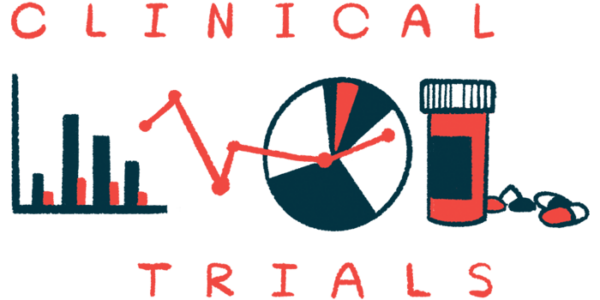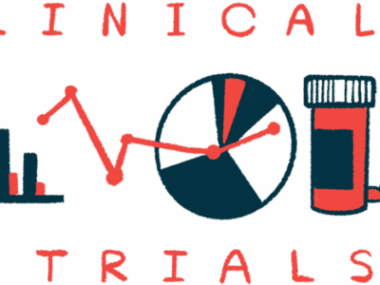New trial data show saroglitazar works to ease liver damage in PBC
Developer plans to file early next year for oral therapy's approval in US
Written by |

One year of treatment with saroglitazar, Zydus Therapeutics’ experimental oral candidate, outperformed a placebo at normalizing markers of liver injury in people with primary biliary cholangitis (PBC), according to top-line data from a Phase 2b/3 clinical trial.
The new findings mean that the Phase 2b/3 EPICS-III study (NCT05133336) — which included adults who did not respond adequately or could not tolerate the first-line PBC treatment ursodeoxycholic acid (UDCA) — achieved its main goal.
“The EPICS-III results reinforce our commitment to advancing novel treatments for chronic liver disease — an area of high unmet medical need and growing global impact,” Pankaj Patel, chairman of Zydus, said in a company press release announcing the positive trial findings.
“As we look ahead, we’re excited about the potential of this investigational treatment and intend to discuss these results with regulatory agencies and plan to move forward with a regulatory submission to the U.S. Food and Drug Administration in the [first three months] of 2026.”
The company expects to present EPICS-III’s full results at a future scientific meeting, per the release.
PBC is marked by inflammation in the bile ducts, a series of tubes that carry the digestive fluid bile out from the liver to the intestines. Inflammation in these ducts interferes with the normal flow of bile and can lead to bile buildup in the liver.
This in turn can damage the liver and leak bile into the bloodstream, leading to PBC symptoms such as itchy skin, known as pruritus.
First-line treatment with UDCA doesn’t control PBC for all patients
The first-line treatment for PBC is UDCA, sold under the brand names Urso and Actigall and available as an oral tablet. However, this medication doesn’t fully control PBC for all patients, and can lead to intolerable side effects for others.
“In clinical practice, we often see patients who continue to struggle despite being on standard therapy,” said Raj Vuppalanchi, MD, EPICS-III’s global principal investigator and a professor of medicine at Indiana University School of Medicine.
Saroglitazar is an oral therapy designed to activate peroxisome proliferator-activated receptor (PPAR)-alpha and PPAR-gamma, two receptor proteins that help control genes that regulate PBC-related inflammation and scarring. By activating them, the experimental treatment aims to keep these processes under control and ease PBC symptoms.
The therapy received orphan drug status and fast track designation in the U.S. for PBC. These designations are meant to accelerate a medication’s clinical development and regulatory review.
EPIC-III’s Phase 2b part determined the optimal dose of saroglitazar to be tested. The Phase 3 part involved 149 adults with PBC who were resistant or intolerant to UDCA. These participants were randomly assigned to receive either 1 mg of saroglitazar or a placebo, once daily before breakfast, for about a year.
The study’s main goal was to see if saroglitazar was better than the placebo at helping participants achieve a biochemical response. This was defined as blood alkaline phosphatase (ALP) levels lower than 1.67 times the upper limit of normal, a decrease in ALP levels of at least 15%, and normalization of blood bilirubin levels. ALP and bilirubin are both well-established markers of liver damage and are important predictors of PBC disease progression.
Trial testing saroglitazar meets primary and secondary goals
One-year results showed that the study hit its primary goal. According to Zydus, there was a treatment difference in achieving a biochemical response of 48.5% favoring saroglitazar over the placebo.
The study also met its key secondary goal, the company said, noting that a significantly higher proportion of saroglitazar-treated patients achieved ALP level normalization relative to those on the placebo.
Overall, the experimental therapy was well-tolerated, with rates of adverse events that were generally comparable between the treatment and placebo groups, per the company.
According to Patel, “saroglitazar is the first PPAR alpha/gamma agonist to demonstrate positive Phase 3 data in patients with PBC.”
Given these data, the therapy “has the potential to bring real value to both patients and their healthcare providers who may need more options,” Patel said.
Expanding our treatment options with new therapies could significantly change how we personalize care for individuals with PBC who haven’t responded to first-line treatment.
For his part, Vuppalanchi expressed appreciation to the trial participants, saying, “We are thankful to the patients, their families, and the investigators whose participation made this study possible.”
The company is now planning to move the therapy toward regulatory approval, with an eye toward a submission in the U.S. early next year.
“Expanding our treatment options with new therapies could significantly change how we personalize care for individuals with PBC who haven’t responded to first-line treatment,” Vuppalanchi said.



